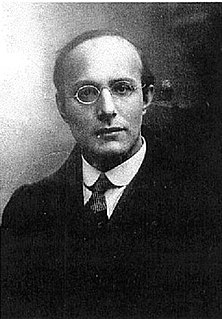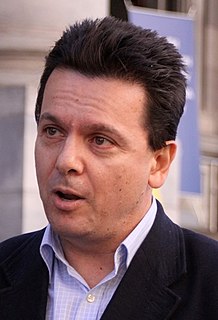A Quote by Ludwig von Mises
Manufacturing and commercial monopolies owe their origin not to a tendency imminent in a capitalist economy but to governmental interventionist policy directed against free trade and laissez faire.
Related Quotes
There was nothing natural about laissez-faire; free markets could never have come into being merely by allowing things to take their course. Just as cotton manufactures were created by the help of protective tariffs, export bounties, and indirect wage subsidies, laissez-faire was enforced by the state.
To check centralization and usurping of power ... we require a new laissez-faire. The old laissez-faire was founded upon a misapprehension of human nature, an exultation of individuality (in private character often a virtue) to the condition of a political dogma, which destroyed the spirit of community and reduced men to so many equipollent atoms of humanity, without sense of brotherhood or purpose.
I am opposed to all forms of control; I am for an absolute laissez faire, free, unregulated economy. I am for the separation of the state and economics, just as we had separation of state and church, which led to peaceful coexistence among different religions...so the same applies to economics. If you separate the government from economics, if you do not regulate production and trade, you will have peaceful cooperation, and harmony and justice among men.
Government control of the economy, no matter in whose behalf, has been the source of all the evils in our industrial society -- and the solution is laissez-faire capitalism, i.e., the abolition of any and all forms of intervention in production and trade, the separation of State and Economics, in the same way and for the same reasons as the separation of Church and State.
I believe, unlike people that are totally free-market, laissez-faire fundamentalists, that there is an important role that the government can play - one, in providing public goods, whether it's education, health care, or other things, and two, supervising countercyclical policy - stimulus, whether it's monetary, fiscal, or otherwise.
Radicals, on the other hand, want to advance from the jungle of laissez-faire capitalism to a world worthy of the name of human civilization. They hope for a future where the means of economic production will be owned by all of the people instead of just a comparative handful. They feel that this minority control of production facilities is injurious to the large masses of people not only because of economic monopolies but because the political power inherent in this form of centralized economy does not augur for an ever expanding democratic way of life.

































